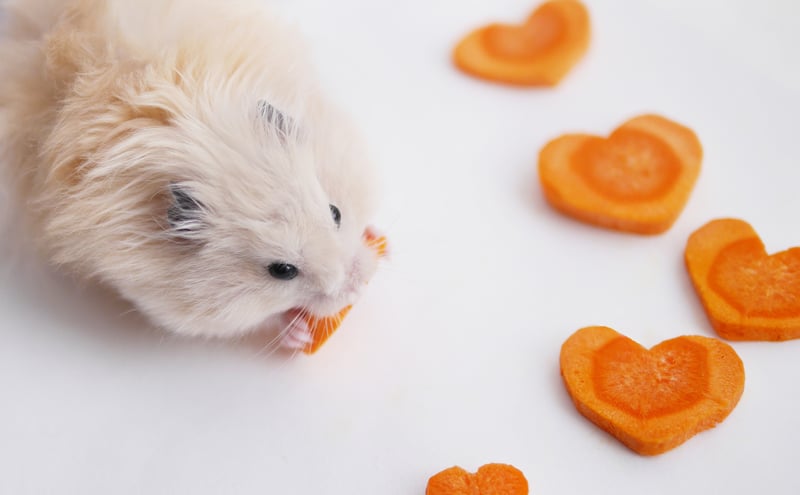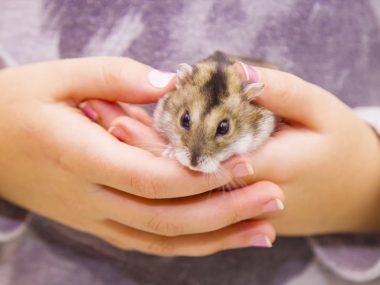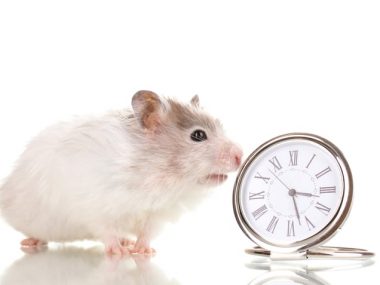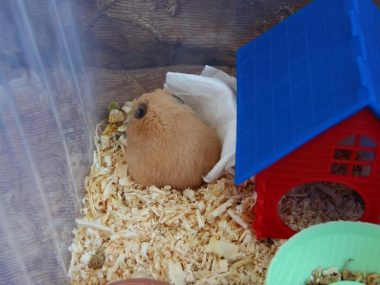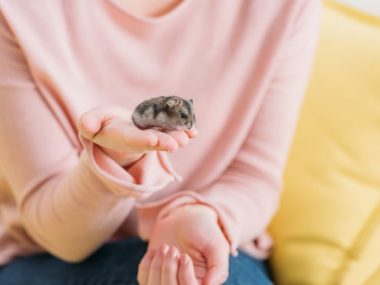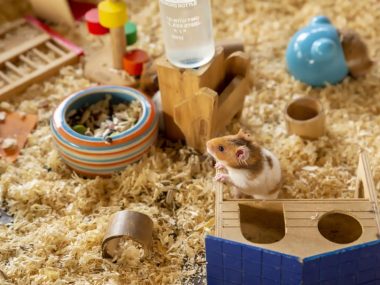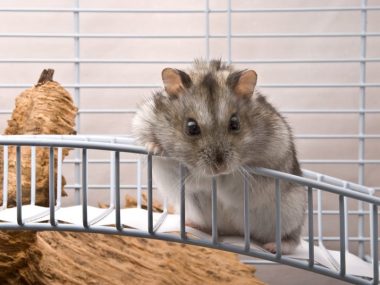Hamsters eat every two hours. Guess what happens when they realize there isn’t any food at that next feeding? It’s not a pleasant reaction and is one to avoid at all costs!
Table of Contents
Feeding A Hamster
Hamsters living in the wild spend the majority of each night outside of their burrows foraging for food. The only time they go without food is if they are injured, ill, dying, or have the limitations of old age upon them.
A hamster in captivity is totally dependent on its hamster parent(s) to provide food and water. One of the first things that pop into our minds when planning an out-of-town trip is keeping our hamsters fed while we are gone. How often do hamsters need to be fed, and will they do okay with fewer feedings?
Hamsters instinctively hoard and bury food within their bedding. Unfortunately, much of these hidden troves of hoarded food get discarded during cage cleanings. When we clean all of their buried food out of the cage bedding, we remove the very survival mechanism they depend on in the wild.
It helps to understand (as hamster parents) what a hamster goes through if left alone and unfed. We may rethink our out-of-town plans.
What Happens When A Hamster Doesn’t Get Fed
It is pretty disturbing to realize that after a certain number of hours without food or water, a hamster begins to suffer. A hamster undergoes physiological and psychological changes that can potentially be fatal or alter its jovial personality.
Circumstances That May Interrupt The Hamster Feeding Schedule
Sometimes, life doles out events that we have no control over, requiring us to be away from home. However, regardless of those emergencies and catastrophic circumstances, we must not forget our hamster. They are, in essence, like children depending on us to ensure their basic needs are met.
Vacation
When planning that family vacation or a long weekend getaway, don’t forget the hamster. Many of our readers ask, “Can you leave a hamster alone for 3 days to go out of town?” It’s best to have a neighbor or pet sitter take care of the hamster while you are gone, regardless of how short or long your trip is.
Sickness
When the primary hamster caretaker comes down ill and stuck in bed with no energy, who takes care of the hamster? Before this happens, have a plan in place who will step in to care for your hamster. Perhaps your oldest child, spouse, neighbor, or relative can assume this duty. Never allow your hamster to go without food and water while you recover.
Running Out Of Food
Inevitably, we will at some time or other find ourselves out of hamster food. It happens. Procrastination in going to get more is not a good solution. Instead, we must make that trip to the pet store or have it delivered as soon as possible.
Forgetting
Sometimes we are burning the candle at both ends and find that things around the house are not getting done. For those of us leading busy lives, setting a reminder on our phone or putting a post-it note near the front door to not forget feeding the hamster really does work!
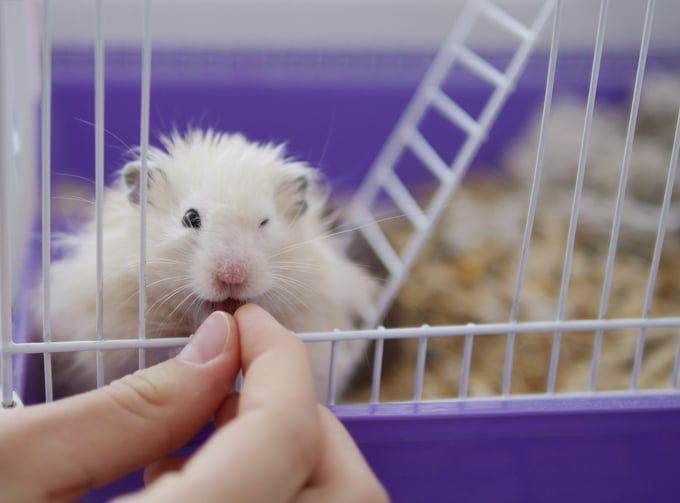
Just How Long Can A Hamster Go Without Food And Water?
Now we get into the evidence-based info that every hamster parent should be well aware of as it relates to a hamster going without food or water. A published article (“Nutrient Requirements of the Hamster”) highlights what happens when a hamster goes without food or water.
The article notes the amount of water male and female hamsters consume daily. Syrian (Golden) hamsters require about one to three teaspoons of water per day. Dwarfs need about 2-3 teaspoons a day. Anything less than these amounts can affect a hamster.
Norecopa’s study on “Fasting in Rodents” (hamsters are rodents) mentions eye-opening data confirming that hamsters should not go without food for more than 16 hours. Ideally, they should never go without food. The stomachs of male rodents empty 6 hours after eating, and females empty 6-18 hours after eating.
Physiological changes begin to occur after 18 hours that include a 10-18% reduction in body weight. The liver weight increases and begins to release fatty acids. The metabolic rate begins to decrease. The body temperature lowers (which can lead to hibernation) while glucose levels drop. These changes may lead to a very sick or dead hamster.
Psychological changes start to appear just a few hours after lack of food. A hamster becomes stressed without food availability and becomes aggressive. These behaviors can be imprinted upon the psyche of the hamster, taking a rather cuddly, sweet pet and turning it into a hard-to-handle, insecure hamster.
The University of Tokyo published a research study on how a hamster reacts to feeding intervals. The study reveals hamsters develop organized behaviors based on their feeding times. Their behavior becomes highly altered when food is withheld.
What Is The Healthiest Hamster Food?
A hamster should be fed regularly with a nutritional pellet diet along with the occasional treat. Treats can be fresh fruit and veggies. “People” food high in sugar, salt, preservatives, artificial flavorings/color, and fat are not suitable for a hamster. Knowing what to feed them helps ensure you have a happy, healthy pet.
Don’t Go If Left Alone
Before planning a trip, whether overnight or a few weeks, have a pet sitter lined up to care for your hamster. Leaving a hamster alone for more than several hours is definitely something to avoid. After all, human interaction is just as important as the availability of food and water.
